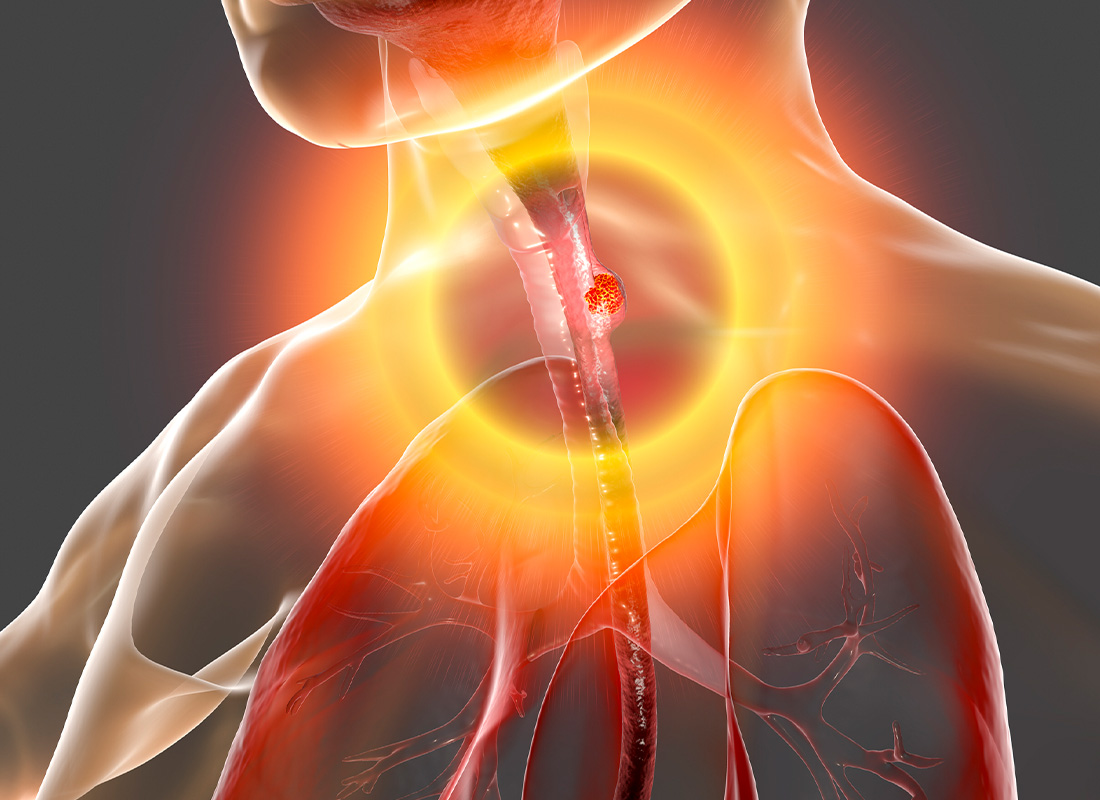FDA Watch: New Test for Esophageal Conditions is Coming to the US
UK-developed assay that uses a sponge appears to reduce the need for more invasive endoscopies.

A device to make testing for esophageal ailments easier is crossing the pond and will soon be navigating American gullets.
The U.S. Food and Drug Administration (FDA) has given 510(k) clearance for EndoSign®, a device designed by the British company Cyted that is used to test for the precancerous condition Barrett’s esophagus—as well as for esophageal cancer itself.1
Although the EndoSign device is intrusive, it appears somewhat more palatable than undergoing a traditional endoscopy. As opposed to having a tube pushed down into the esophagus, a patient swallows a sponge compressed into a capsule that is around two centimeters long and is attached to a thread. When the capsule dissolves in the stomach after about seven minutes, the clinician administering the assay then uses the string to slowly extract the sponge, which collects cells in the esophagus as it is being withdrawn from the body.2
The test is intended to be administered to patients with persistent acid reflux, which can lead to Barrett’s esophagus and esophageal cancer. There are about 22,400 new cases of esophageal cancer diagnosed in the US every year. About 16,000 Americans die from the disease annually.3
Cyted spokesperson Caroline Cotten said that Devyser Genomic Laboratories—a Swedish enterprise with a CLIA-approved laboratory in Atlanta—will conduct the testing of samples collected by EndoSign.
Aside from the fact that it is likely a more pleasant procedure to endure than an endoscopy, the EndoSign test also likely helps patients avoid one of the other risks: contamination from an improperly cleaned endoscope. According to a 2023 study in the journal Endoscopy International Open, up to 30 percent of such devices still contain microorganisms after being reprocessed for use in the next patient.4 For example, a superbug outbreak caused by improperly processed endoscopes used at Ronald Reagan UCLA Medical Center infected 179 patients and killed two in 2015.5 Another outbreak in Seattle between 2012 and 2014 was linked to contaminated duodenoscopes that infected 39 and may have killed as many as 12.6
“Cyted is currently working on securing medical reimbursement through the U.S. Centers for Medicare & Medicaid Services and commercial insurance companies,” Cotten said in an email.
EndoSign is already being used by the United Kingdom’s National Health Service. A recent study conducted by IQVIA concluded that the device saved NHS England an average of about $531 per patient by reducing the need for them to undergo endoscopies.7
“Cyted’s potential to transform the way patients with chronic reflux are identified and monitored is significant and this clearance is a major step for our expansion,” said Cyted CEO Marcel Gehrung in a press release.1
Cotten said the assay should be available in the US later this year.
This isn’t the only less-invasive sampling option for detecting Barrett’s esophagus on the US market. Lucid Diagnostics’ EsoCheck™, which uses a small, swallowable balloon attached to a silicon tube for sample collection, was first granted FDA 510(k) clearance in 2019. The company is also still seeking full FDA clearance for EsoGuard™, its associated methylated DNA diagnostic test for samples collected via EsoCheck. However, the EsoCheck/ EsoGuard combination received FDA Breakthrough Device Designation in 2020.8
Takeaway: A new process to help patients avoid the physical discomfort and possible biohazard risk of an endoscopy has been developed overseas but may have a significant appeal to American clinicians and patients.
References:
**********
Here are other significant new laboratory testing and diagnostic product clearances announced in the period from mid-January 2024 to early February 2024:
New FDA Approvals and Emergency Use Authorizations (EUAs)
| Manufacturer | Product | Date Approved |
| T2 Biosystems | 510(k) clearance to expand use of its T2Bacteria® Panel for sepsis detection to include testing for Acinetobacter baumannii (A. baumannii) | February 8, 2024 |
| Proscia | 510(k) clearance for Concentriq Dx whole slide imaging system | February 8, 2024 |
| Beckman Coulter | 510 (k) clearance for the Access SHBG immunoassay for testosterone and dihydrotestosterone | February 8, 2024 |
| Becton Dickinson | 510(k) clearance for the BD Vacutainer® K2 EDTA Blood Collection Tubes | February 2, 2024 |
| LifeOutcomes LLC | 510(k) clearance for the LifeOutcomes C-Quest™ Blood Culture Sampling Device | January 26, 2024 |
| Cyted | 510(k) clearance for its EndoSign cell collection device, a non-endoscopic capsule sponge device used to collect pan-esophageal samples | January 19, 2024 |
| Cepheid | Approval with CLIA waiver for Xpert® Xpress MVP (Multiplex Vaginal Panel) for identifying vaginosis | January 18, 2024 |
| Siemens HealthCare Diagnostics | 510(k) clearance for the Atellica® CH High Sensitivity C-Reactive Protein 2 (hCRP2) test | January 18, 2024 |
| Co-Innovation Biotech Co. | 510(k) clearance for rapid marijuana tests | January 17, 2024 |
New CE marks and global certifications
Notable European CE certifications and other global clearances announced during the period:
| Manufacturer | Country/Region | Product | Date Approved |
| FUSE-AI GmbH | EU | EU MDR 2017/745 IIa certification for its Prostate.Carcinoma.ai testing platform. | January 29, 2024 |
Subscribe to view Essential
Start a Free Trial for immediate access to this article